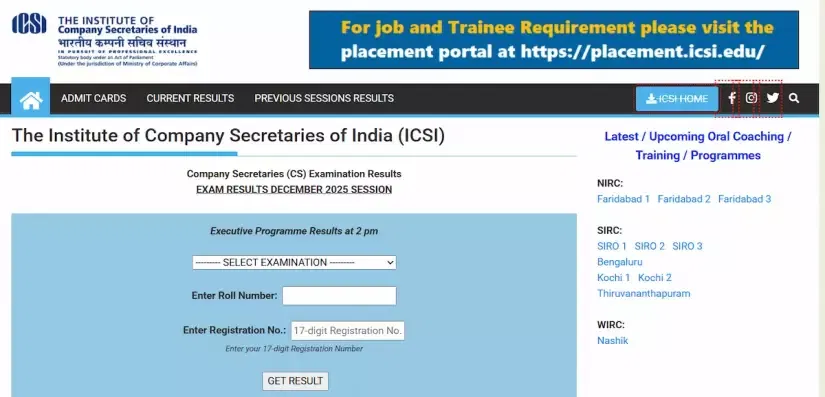Do you know that the UK offers five types of PhD programs? This article will help you explore the top universities for pursuing PhD in the United Kingdom.
Table of Contents
International students willing to pursue PhD in UK universities need to spend around 18,000 to 35,000 per year for tuition fees. In India, this would be equivalent to 18-36.2 lakhs INR per year. Top PhD universities in the UK offer 3-4 year full-time programs and 6 year part-time programs.
The UK offers many scholarships for international students, including scholarships and grants offered by the UK Research and Innovation agency, etc. Read through this article to find out more about the types of PhD, top universities, scholarships available for PhD in the UK.
Top PhD Programs in the UK
Universities in the UK are equipped with modern infrastructure and state-of-the-art facilities to facilitate PhD research. The following table lists some of these popular degrees, including universities that offer them:
| Program | Universities | Annual Tuition Fees (GBP) |
|---|---|---|
| PhD in Computer Science | The University of Oxford, Imperial College London, University College London | 22,200-33,250 |
| PhD in Medical Science | University of Oxford, Newcastle University, The University of Manchester | 24,000- 32,352 |
| PhD in Engineering | University of Cambridge, University College London, The University of Southampton, The University of Manchester | 22,704- 32,352 |
| PhD in Sociology | London School of Economics and Political Science, University of Oxford, University of Manchester, University of Warwick | 19,338-24,450 |
| PhD in Law | The University of Oxford, London School of Economics and Political Science, University of Cambridge, King’s College London | 18,740-25,758 |
Types of PhD in the UK
UK universities offer five types of PhDs: Standard, Integrated, Professional, Distance Learning, and PhD by Publication. Standard PhD is the most popular choice among international students. The five different types of PhD are discussed briefly as follows:
Standard PhD
This degree requires 3 to 4 years of full-time study on campus. The first year involves students discussing research proposals with supervisors and formulating a plan. Students in the second and third years are exposed to data collection and research. The final year of study is spent writing a thesis and completing the dissertation viva.
Integrated PhD
This program combines the 1 year Masters in Research (MRes) with a 3-year PhD in the United Kingdom. Over 30 universities offer it. The major goal is to combine a taught component with independent research. It provides students with the opportunity to learn about different methodologies.
Professional PhD
The PhD in this type is usually in a vocational field such as medicine, engineering, or education. The program prepares students for employment in their chosen field. As a result, fewer research theses are written, and more projects are centred around real-life issues facing corporations.
Distance Learning PhD
These types of PhDs are chosen by international students who have duties at work or at home. This is also an ideal method when there is a need for the researcher to visit a specific location. One or two weeks a year, students attend university and generally communicate with their supervisor over the phone, email, or skype. The program takes around 5 to 6 years to complete.
PhD by Publication
Students who have previously published original papers such as book chapters, journal articles, and books can apply for this type of PhD, which is also called Higher Doctorate. It should be noted, however, that most British universities only accept PhDs by publication from their own alumni. Students must submit five to eight publications and a 5,000 to 20,000-word supporting statement to apply for this program.
PhD in UK Universities
Universities in the U.K. offer high-quality education, which attracts international students. The QS Ranking of 2022 identifies four UK universities as among the top universities in the world. The following are some of the top universities offering PhD programs in the UK:
- University of Oxford
- University of Cambridge
- Imperial College London
- University College London
- University of Edinburgh
- University of Manchester
- London School of Economics and Political Science
- University of Bristol
University of Oxford
It is one of the world's oldest universities and demonstrates a highly selective admission policy, with its acceptance rate being 15 percent. At the University of Oxford, more than 10,000 international students make up 45% of the total student body. With an annual endowment of 1.2 billion GBP, the university has been ranked 1st in the Times Higher Education World University Rankings 2021.
Read More: University of Oxford
University of Cambridge
The University of Cambridge is home to brilliant international students from more than 150 different countries. It has an overall acceptance rate of 16.2%, indicating a selective admission policy. More than 22,000 students attend the university. The university boasts over 9,000 international students, accounting for 40% of the total student population. The university is ranked first in the QS World University Rankings by Subject, 2021, and offers a wide variety of research and doctoral study opportunities.
Read More: University of Cambridge
Imperial College London
Among the best-quality educational institutions in the world, Imperial College ranks eighth and first in London, attracting a large number of international students. As the third highest-ranked university in the UK for employability after Cambridge and Oxford, Imperial College London is highly recognized by employers. As per Times Higher Education Rankings, it ranks 11th in World University Rankings 2021.
Read More: Imperial College
University College London
University College London is one of the top-ranking research-intensive universities in the UK, and has produced 30 Nobel laureates. In an academic year, UCL admits around 43,800 students. More than 23,000 students at the university represent more than 150 nations and make up 53% of the entire student body.
Read More: University College London
University of Edinburgh
The University of Edinburgh is recognized as one of the world's top 50 universities and ranks 34 in terms of graduate employment. Global recognition and a good reputation of the university have contributed to the growth of international students. Presently, more than 13,000 students are enrolled in the university.
Read More: University of Edinburgh
University of Manchester
With three faculties and eight schools and departments, the University of Manchester is the largest single-site institution in the UK. As the world's 27th best university according to QS world rankings 2022, it has been offering internationally recognized programs to students from 160+ countries. As per the Academic Ranking of World Universities 2021, it has been ranked 9th among the top universities in the UK.
Read More: University of Manchester
London School of Economics and Political Science
During an academic year, the London School of Economics and Political Science accepts nearly 11,000 students. About 55% of students at LSE are international, representing nearly 200 different countries. According to QS World University Rankings, it ranked 2nd in Social Sciences and Management for the 9th consecutive year in 2021.
Read More: London School of Economics and Political Science
University of Bristol
The University of Bristol, which has more than 20,000 undergraduates and 7,000 graduate students, is known for its excellent teaching and research. Additionally, the university also takes pride in being associated with 13 Nobel laureates. The Guardian University Guide 2021 ranks it at the 11th position among the best universities in the UK.
Read More: University of Bristol
How to Apply for a PhD in the UK?
For admission to a PhD in the UK, a master's degree or, in some cases, a four-year bachelor's degree is required. The application process may also require international students to submit a research proposal describing their research interests and methodologies. PhD applications in the UK do not have a common application portal. Thus, students must submit their applications independently to their choice of university.
Admission Requirements for Ph.D. in the UK
As you are now aware with the application process, let us understand the admission requirements for pursuing PhD in the UK:
- An equivalent UK Masters degree or a 4-year bachelor's degree (Hons)
- At least 70% marks in Bachelor’s and Master’s degree
- Proof of English language proficiency: (IELTS: 7, TOEFL (IBT): 90, PTE: 60)
- Letter of Recommendation
- Research Proposal
- Statement of Purpose (if required)
Here are some university-specific admission requirements for different PhD courses in the UK:
PhD in Computer Science
PhD in Computer Science involves study of computer systems and other related processes. Admission to this program requires a degree equivalent to a Masters in Computer Science in the UK. Following are the admission requirements for PhD in Computer Science:
|
University |
Eligibility |
Other Requirements |
|
University of Oxford |
3-year BA/BSc & MS or 4-year UG Honours; Degree in Maths or CS |
|
|
University of Cambridge |
UG Honours and Masters in CS or related discipline |
|
|
Imperial College London |
UG and masters in a scientific or technical field |
|
|
University College London |
UG and masters in a related discipline |
|
|
Bachelors in CS with minimum 80% or bachelors + masters in computer science |
|
PhD in Medical Science
Due to recent technological advancements and global pandemics such as COVID-19 and Ebola, medical science has become one of the most popular fields of study in the UK. Admission requirements for PhD in Medical Science are listed below:
|
University |
Eligibility |
Other Requirements |
|
University of Oxford |
Undergraduate honours in a biomedical or related field |
|
|
University of Cambridge |
Masters in a related discipline |
|
|
University College London |
Masters in a related discipline |
|
|
University of Manchester |
Undergraduate Honours with 80% or UG and masters in a related discipline |
|
|
UG Honours with 80% and masters in a related discipline |
|
PhD in Engineering
Students can choose from a number of specializations for Ph.D. in Engineering. These include mechanical, chemical, electrical, etc. International students who wish to apply for this program must have a degree equivalent to a Masters in Engineering in the UK. Take a look at the eligibility requirements for PhD in Engineering:
|
University |
Eligibility |
Other Requirements |
|
University of Oxford |
UG Honours in engineering or related discipline |
|
|
University of Cambridge |
UG Honours with at least 80% marks |
|
|
University College London |
Masters in a related discipline |
|
|
University of Manchester |
UG with at least 80% marks and masters in a related discipline |
|
|
Masters in a related discipline |
|
PhD in Sociology
PhD in Sociology involves subjects like economics, social work, anthropology, and politics. It involves research on the relationship between humans and society. Check out the admission requirements for PhD in Sociology at top UK universities:
|
University |
Eligibility |
Other Requirements |
|
University of Oxford |
UG with at least 80% marks and masters in a social science-related area |
|
|
University of Cambridge |
Masters in a related discipline |
|
|
London School of Economics and Political Science |
UG with at least 80% and masters in a social science-related field |
|
|
University of Manchester |
UG with at least 80% marks and masters with at least 65% marks in a social science-related discipline |
|
|
Masters in a related field |
|
PhD in Law
A degree equivalent to a Masters in Law in UK is required to apply for this program. It is majorly for students interested in a career as socio-legal scholars, criminologists, economists, policymaker, or activist workers. Here are the admission requirements for PhD in Law:
|
University |
Eligibility |
Other Requirements |
|
University of Oxford |
UG Honours in law with at least 80% marks |
|
|
University of Cambridge |
UG Honours in law with at least 80% marks |
|
|
London School of Economics and Political Science |
LLM or equivalent |
|
|
King’s College London |
Masters in law; UG Degree with minimum 80% |
|
|
University College London |
Masters in law; UG Degree with minimum 80% |
|
Funding and Scholarships for PhD in the UK
Most UK universities offer studentships for research postgraduates (PhDs and MRes). Scholarships are typically funded by departments, colleges or external agencies and cover tuition fee coverage plus a stipend. The UK offers studentships that cover the costs associated with attending seminars and workshops related to their research projects taken up by PhD candidates. Academic performance during a master's or bachelor's degree determines whether the candidate is eligible for such awards.























POST YOUR COMMENT